
 |
|
|
Vegetables
Volume 58 Number 11 Date 07/18/2013 SQUASH VINE BORER - Moths are still very active around pumpkins, zucchini and squash in home gardens and larger field plantings. Growers of these vine crops should continue checking susceptible plants for flat, brown eggs deposited at the base of stems as long as the moths are present. Control is necessitated as soon as the eggs are noticed to prevent the larvae from boring into the vines. The first sign of infestation is plants that wilt during the afternoon hours. LATE BLIGHT - To date there have been two confirmed reports of late blight on commercial potato and one report on tomato in the state. The University of Wisconsin-Extension recommends growers continue a 5- to 7-day fungicide program to protect their crops from this disease. BACTERIAL WILT - Reports indicate this insect-transmitted disease is developing on cucumbers in Dane, Grant and La Crosse counties. The vectors are the striped and spotted cucumber beetles mentioned in previous bulletin issues. Control consists of eliminating cucumber beetles (usually with an insecticide application) and removing symptomatic plants to reduce inoculum sources. Treatment is justified for infestations of 4-5 beetles per 50 plants. SQUASH BUG - These insects are feeding on cucurbit crops, causing symptoms similar to bacterial wilt. Unlike the bacterial wilt, affected plants usually recover once the squash bugs have been controlled. According to UW-Extension Vegetable Specialist, Russell Groves, insecticide options for commercial plantings include synthetic pyrethroids (e.g. Brigade, Mustang, Pounce, Warrior, etc.) or neonicotinoids (Assail, Belay, Scorpion, Endigo). Organic growers will need to rely upon directed applications of pyrethrum (Pyganic) or the pre-mix with azadirachtin (Azera). An average of one egg mass per plant when plants are flowering is recommended as the basis for initiating treatment. CUCURBIT DOWNY MILDEW - This disease has not been identified in Wisconsin this season, but several other states, including AL, DE, AL, FL, MI, MD, NC, NJ, OH, SC, FL, GA, TX, and VA, are reporting cases on a variety of cucurbit hosts. Commercial growers and gardeners are advised to remain attentive for disease symptoms and be prepared to take appropriate measures to protect their vegetables if weather patterns turn conducive for disease spread. Early detection and preventive fungicide applications are critical for suppressing downy mildew epidemics. -- Krista Hamilton, DATCP Entomologist 
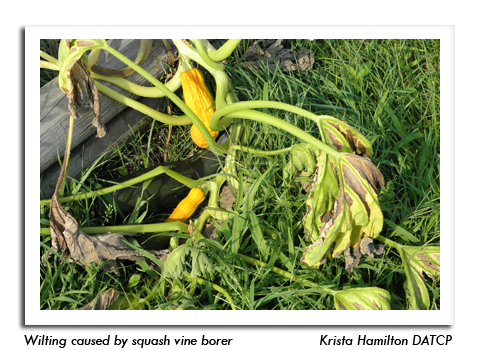
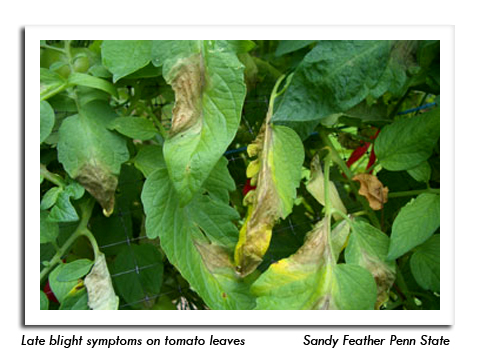
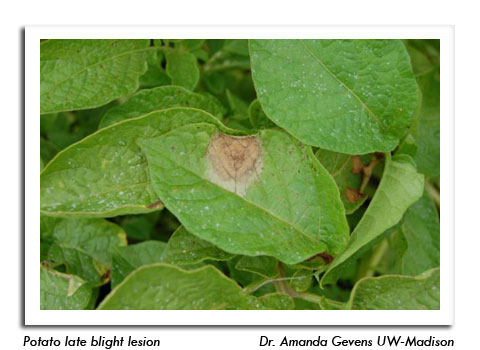
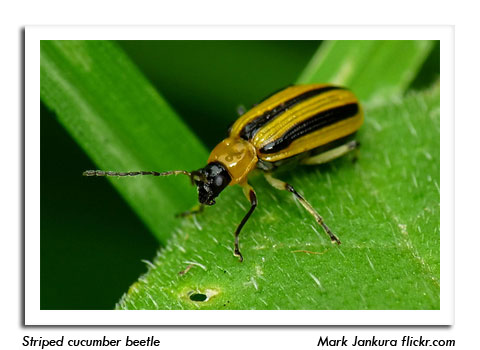
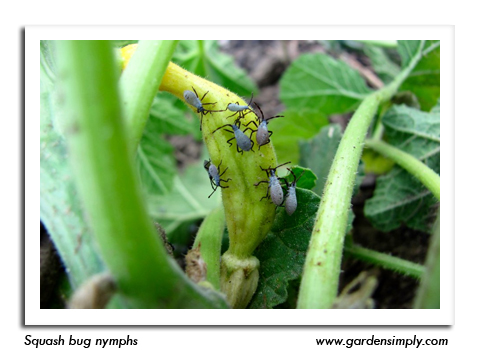
|
|
|